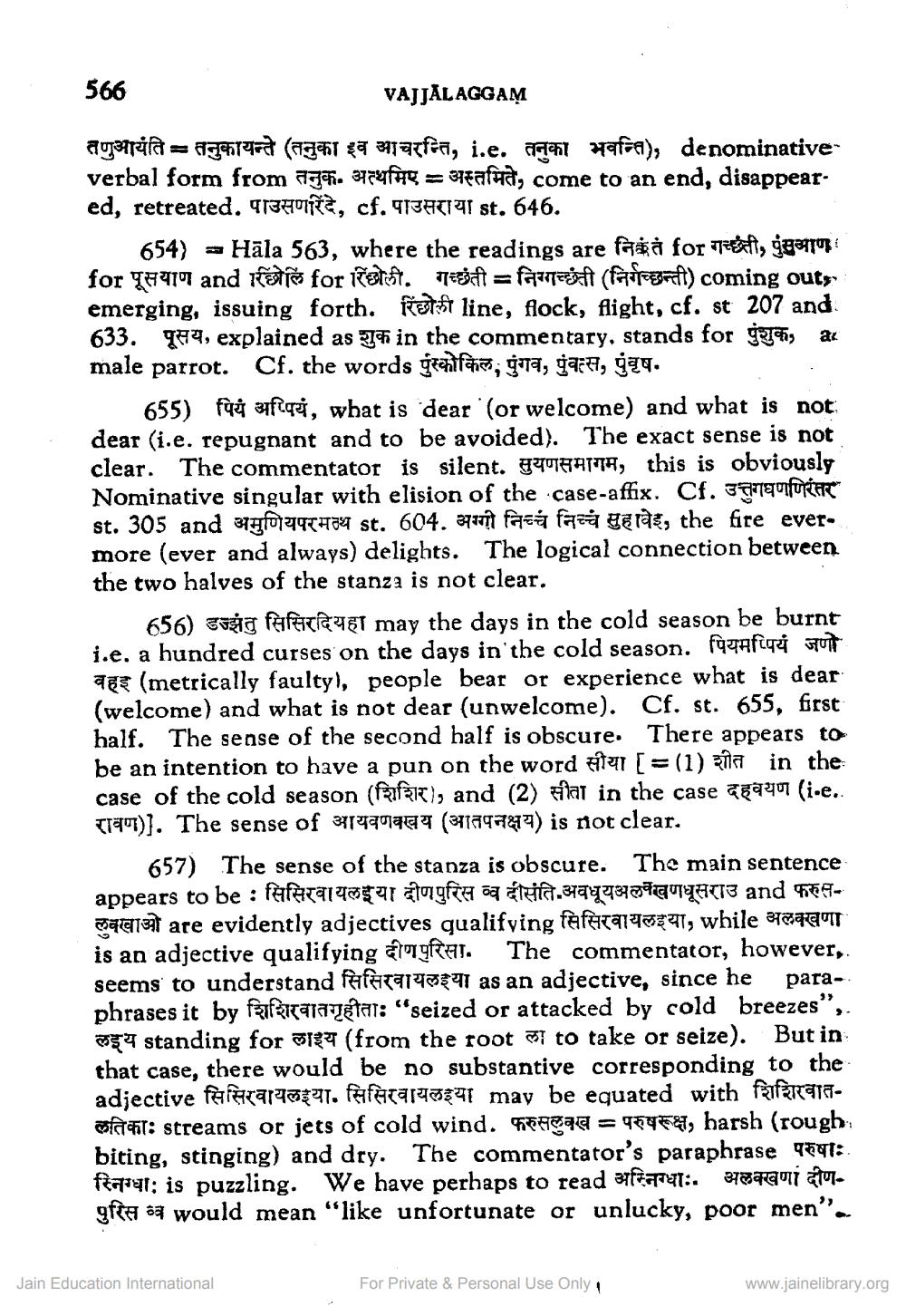________________
566
VAJJĀLAGGAM
agarrila = 791979 (aakt &a 311afea, i.e. pahil wafan), denominative verbal form from तनुक. अत्थमिए = अस्तमिते, come to an end, disappeared, retreated. 973at, cf. 973acia st. 646.
654) - Hāla 563, where the readings are fata for Te, gazmus for 77917 and fatis for PETA. 753 = fanntest (fastesnA) coming outs emerging, issuing forth. Rel: line, flock, flight, cf. st 207 and 633. पूसय, explained as शुक in the commentary. stands for पुंशुक, ar male parrot. Cf. the words jeanfitrios, gara, gach, gęy.
655) fìù effici, what is dear (or welcome) and what is not dear (i.e. repugnant and to be avoided). The exact sense is not clear. The commentator is silent. 907TH, this is obviously Nominative singular with elision of the case-affix. Cf. 3qraufURER st. 305 and 34101295434 st. 604. 371 facă fază geras, the fire ever. more (ever and always) delights. The logical connection between the two halves of the stanza is not clear.
656) डझंतु सिसिरदियहा may the days in the cold season be burnt i.e. a hundred curses on the days in the cold season. fqgafirei Frut a (metrically faulty), people bear or experience what is dear (welcome) and what is not dear (unwelcome). Cf. st. 655, first half. The sense of the second half is obscure. There appears to be an intention to have a pun on the word सीया [ = (1) शीत in the case of the cold season (
F IT), and (2) Alat in the case a 5990 (i.e. रावण)]. The sense of आयवणक्खय (आतपनक्षय) is not clear.
657) The sense of the stanza is obscure. The main sentence appears to be : fafecal40$ap alagre o atit.31944337uqarT3 and 459लुक्खाओ are evidently adjectives qualifving सिसिरवायलइया, while अलक्खणा is an adjective qualifying a ftal. The commentator, however, seems to understand FAFATIT95341 as an adjective, since he paraphrases it by farfaitaiatetat: “seized or attacked by cold breezes",
4 standing for 3134 (from the root to take or seize). But in that case, there would be no substantive corresponding to the adjective forecarga21. ffatangazat may be equated with ferataलतिकाः streams or jets of cold wind. फरुसलुक्ख = परुषरूक्ष, harsh (rough: biting, stinging) and dry. The commentator's paraphrase 9591:. ftatuet: is puzzling. We have perhaps to read aftariat:. 378700i atorgfta 62 would mean "like unfortunate or unlucky, poor men”.
Jain Education International
For Private & Personal Use Only !
www.jainelibrary.org




